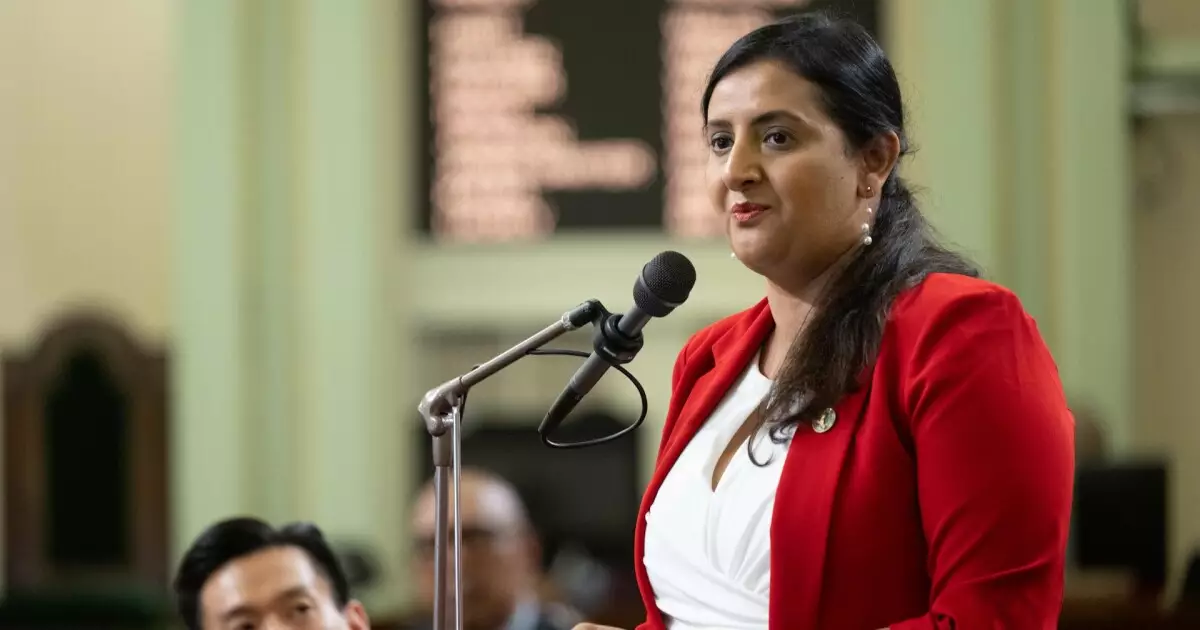In an unprecedented move, California Governor Gavin Newsom has sealed a budgetary pact that flies under the radar of fiscal prudence: a staggering $2.8 billion allocation to address unexpected expenditures within the Medi-Cal program. This decision, tucked away in Assembly Bill 100, not only raises eyebrows but also ignites fundamental concerns about the sustainability of such policy choices amidst California’s complex socio-economic landscape. While the intention to offer health care to some of the state’s most vulnerable populations cannot be overlooked, it raises an unsettling question: at what cost?
The Flawed Premise of Universal Coverage
Supporters argue that extending Medi-Cal to include undocumented immigrants is a pragmatic solution to rising healthcare costs—claiming that covering these individuals will lead to fewer emergency room visits and lower overall expenditures. However, this premise simplifies a complex equation. In reality, it seems to disproportionately burden taxpayers. The stark reality is that Medi-Cal spending continues to spiral uncontrollably; from a mere $42.1 billion six years ago, it has ballooned to an alarming $188.1 billion today. Much of this growth is directly linked to expansion efforts targeting groups like undocumented immigrants, amplifying growing sentiments of dissent within bipartisan circles.
Arguments made by Democrats, including Dr. Jasmeet Bains of Delano, advocate for the notion that failure to treat undocumented immigrants early leads to more extensive medical complications and costs down the line. Yet, while it is essential to find middle ground in the healthcare debate, one cannot overlook the straightforward logic: for every free service offered, there is a cost to the taxpayer, and that cost continues to climb.
The Republican Counterpoint: A Fiscal Reality Check
In sharp contrast to the pro-expansion stance of Democrats lies the strong opposition from Republican lawmakers who have painted the Medi-Cal expansion as a ‘gift’ to undocumented immigrants. Assemblymember Carl DeMaio’s comments resonate with a significant portion of the electorate who sense that they are being asked to subsidize services for individuals who are not contributing to the state’s tax revenue. DeMaio’s repeated calls for an audit of Medi-Cal’s escalating expenses highlight a transparent frustration: why are taxpayer dollars being spent in what many see as an unsustainable fashion? His remarks resonate with the center-right perspective, which underscores the importance of holding the government accountable and ensuring that funds are utilized in ways that are both responsible and transparent.
Contrary to the claims that extending healthcare will somehow lessen overall costs, the reality is that it sets a dangerous precedent. As articulated by DeMaio, “When he first proposed [the Medi-Cal expansion], he said it would only cost $6.5 billion – and today we learn it costs $9.5 billion.” Herein lies the crux of the issue; it’s not merely about funding healthcare—it’s about adopting a fiscal approach that assures accountability and sustainability for the long run.
The Impact of Policy on Local Governments
Additionally, Assembly Bill 100 includes provisions aimed at assisting local governments affected by the devastation of recent wildfires while also offering support to forest resilience initiatives. However, while these efforts may seem noble on the surface, they too are intricately linked to the core issue of budgetary allocations. Are we diverting necessary funds from urgent local services to appease a rapidly multiplying healthcare budget that has gone unchecked?
California stands at a crossroads; it needs policies that not only provide necessary services but also maintain a sense of fiscal responsibility. This builds a fragile yet vital trust between the government and its constituents. State funding must prioritize the needs of established residents while balancing humanitarian efforts—a task that could ultimately save the state from further financial jeopardy.
The Need for Reform Over Expansion
In closing, what California requires is not more expansive promises or hasty budget approvals, but rather a commitment to reforming existing systems. Medi-Cal’s growth poses a financial risk for the state—a risk that will only worsen unless genuine efforts are made to ensure efficiency and accountability in healthcare spending.
The compassionate vision of universal healthcare for all cannot come at the expense of fiscal stability. To genuinely stand for the well-being of all Californians, policymakers must strike a balance between aiding those in need and maintaining a budget that doesn’t compromise public services for generations. The ongoing conversation about Medi-Cal should not be dismissed lightly, for it touches the very heart of California’s future.

